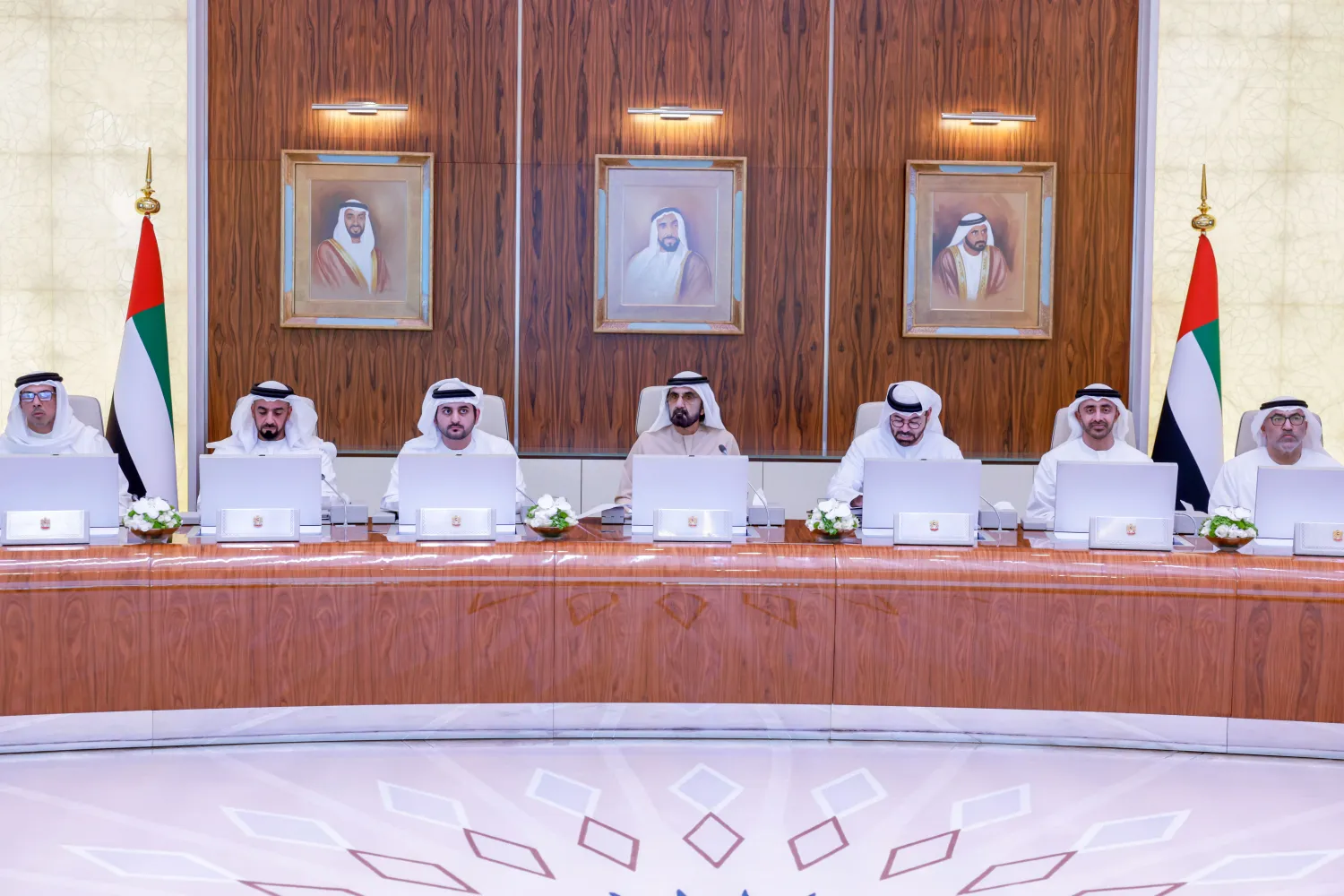The UAE approved 24 national initiatives seeking to double its re-export by 100 percent within the seven coming years through benefiting from the 50 commercial offices worldwide.
The initiatives include the establishment of a national re-export committee, which mainly contributes to supporting an increase in re-export rates. They mainly focus on developing new specialized areas in coordination with local governments and a value-added program for re-export.
The initiatives were launched during a cabinet session chaired by Vice President and Prime Minister Sheikh Mohammed bin Rashid Al Maktoum.
Sheikh Mohammed said: "We will double the country's re-export by developing specialized areas in cooperation with local governments, establishing the International Trade Links Center, launching supportive programs, and increasing foreign investments in the service sector.
The cabinet reviewed UAE's economic achievements during 2022 under the Comprehensive Economic Partnership Agreement (CEPA) with India.
The volume of non-oil trade between the two countries reached $21.5 billion by September 2022, achieving 23 percent growth in the same period in 2021 and 133 percent in 2020.
The volume of UAE non-oil exports to India recorded $5.3 billion in the same period, with a growth rate of 12 percent compared to the same period in 2021 and 154 percent compared to 2020.
"The meeting reviewed more than 19 initiatives to attract talent to the country. The UAE ranked second globally in the Competent Senior Managers indicator. Our goal is to attract the best talents in the world as we continue to empower and enable our Emirati talents and national cadres," according to Sheikh Mohammed.
The Vice President indicated that the session reviewed the Higher Commission Free Trade Negotiations results.
The UAE "signed four international agreements with four countries. The positive impact of international agreements is reflected clearly in the numbers of the UAE's foreign trade."
Sheikh Mohammed stated, "The meeting approved hosting the International Union for Conservation of Nature World Conversation Congress (IUCN) in 2025, which attracts more than 10,000 experts from more than 160 countries. The UAE will remain a leading hub for sustainability, nature conservation, and protection."
The cabinet approved a new federal law to replace the Federal Law on Maritime Commercial law, a Federal Decree Law about reorganizing the Higher Colleges of Technology (HCT), in addition to a ministerial decision adopting the UAE's approach for aircraft and unmanned aerial vehicles (Drones) products and systems in the country.
During the meeting, the cabinet approved ratifying the Comprehensive Economic Partnership Agreement with Türkiye and Côte d'Ivoire.
It also ratified the country's accession to the Arab Customs Cooperation Agreement, the Digital Economy Partnership Agreement (DEPA), and the Agriculture Innovation Mission for Climate.









